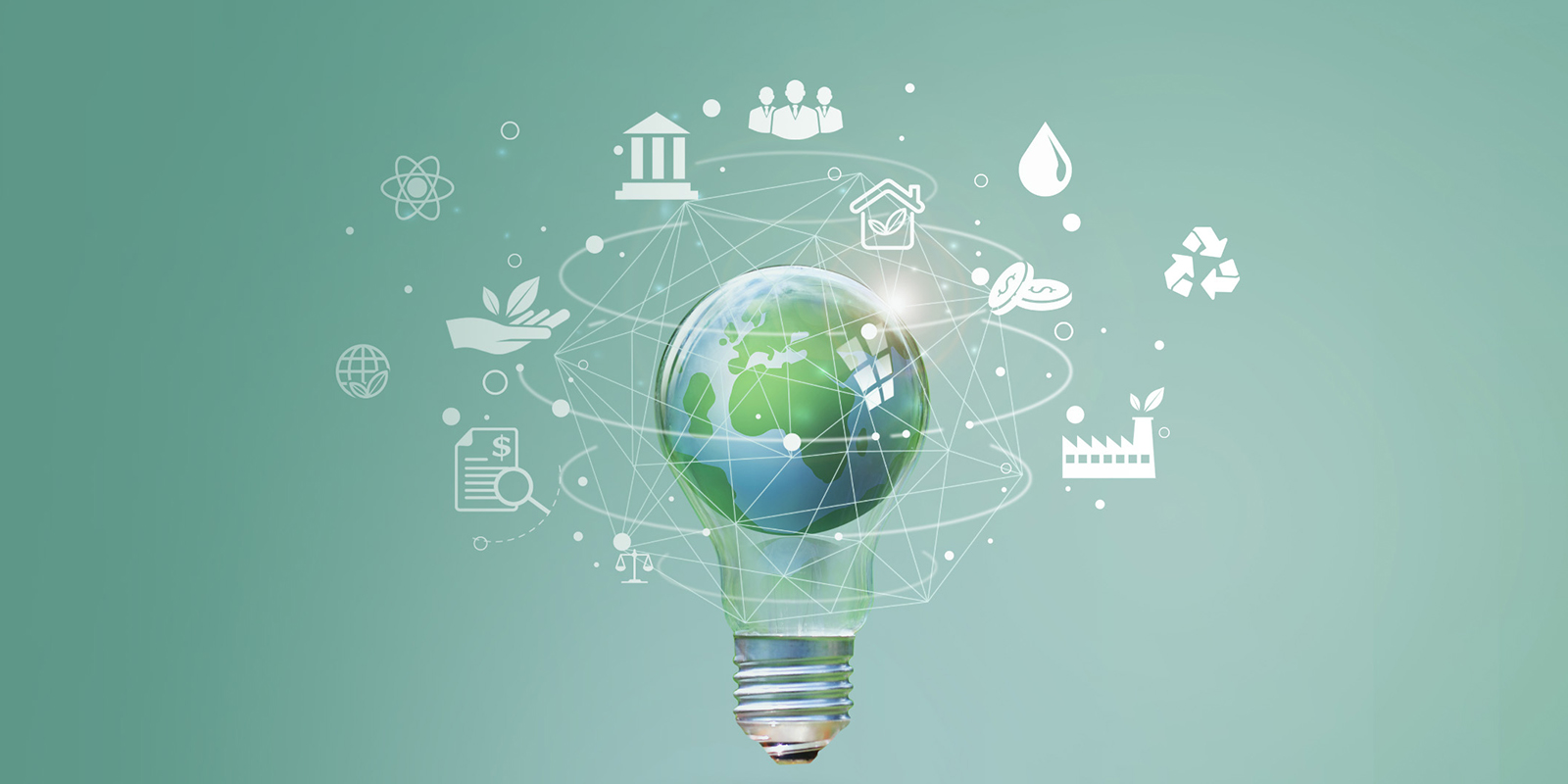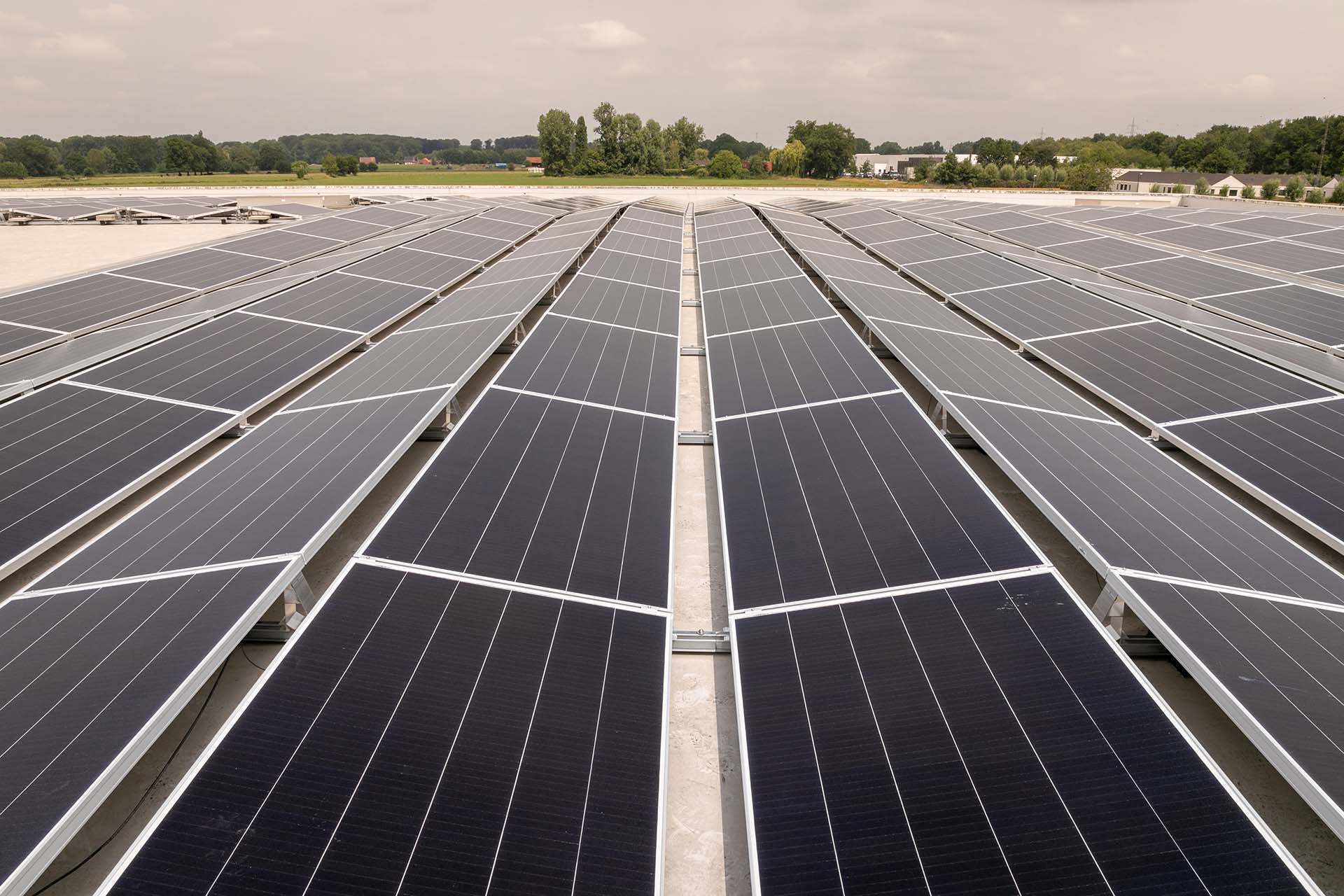Sustainable energy: Investing in the future
Discover how our company is committed to sustainable energy and CO2 reduction, and how we are reducing our electricity consumption. Jorrit Peeters, Maintenance & Facilities Manager at ETAP, shares insights on why solar energy is essential for ETAP and society at large.

Reading time: 4'30"

While the Science Based Targets initiative prescribes a 50% reduction, ETAP is going a step further with a bold plan to reduce emissions by a staggering 55% by 2025.
How are we going to achieve this goal?
An important step is expanding our solar energy system to 4080 panels, which will increase our energy output by an impressive 236%. This means that by 2025, we will be able to generate a peak power of 2025 kilowatts from alternative energy sources. On sunny days, we will be able to produce all of our electricity ourselves, eliminating our dependence on fossil fuels.

Why is the topic of solar energy important for both our company and society as a whole?
Solar energy is an important topic for both ETAP and society because it is a renewable energy source that helps reduce our dependence on finite fossil fuels, which contribute to climate change. It offers numerous benefits, such as:
- Cost savings: Photovoltaic panels provide energy savings by harnessing free solar energy to power our operations.
- Energy independence: With photovoltaic panels, our company can generate its own electricity and reduce reliance on traditional energy sources.
- Environmental benefits: Solar energy is a clean and renewable energy source that does not produce harmful emissions.
How do solar panels contribute to reducing our CO2 emissions and achieving our climate goals?
Photovoltaic panels generate electricity by harnessing the power of the sun, without emitting harmful substances. This means that solar energy can be used as an alternative to energy generated from fossil fuels and nuclear energy.
By doing so, we can significantly reduce our ecological footprint and contribute to a decrease in overall CO2 emissions. Photovoltaic panels are a renewable energy source that can help us transition to a low-carbon future.
What are the challenges in implementing solar energy solutions, and how are we addressing them?
A project of this magnitude always comes with challenges. Some of these challenges are common to all renewable energy projects, while others are specific to the project at ETAP.
- High project costs: The initial costs of installing photovoltaic panels are high, and the payback period and profitability depend on various factors. Factors such as current electricity prices, market trends, additional costs, and potential subsidies play a role. We have made a realistic assessment of all variables and concluded that photovoltaic panels are a good investment, especially when considering the climate benefits. Therefore, the decision to proceed with this project was a straightforward choice.
- Roof stability: Before installing photovoltaic panels, an independent structural engineer must conduct a stability study to ensure the safety of people and buildings. Given the age of our buildings, some of our roofs will require reinforcement before the photovoltaic panels can be installed.
- Installation logistics: Unfortunately, the project is experiencing delays due to material shortages that were previously present but are no longer an issue. Currently, our supplier is facing a shortage of execution personnel due to an unprecedented workload. We are working together step by step, roof by roof, to complete the project as quickly as possible.
- Non-permanent availability: Renewable energy sources such as solar and wind energy depend on what nature provides, making their availability unpredictable. Therefore, we will still need to purchase electricity during cloudy and dark days. In the summer, we will have a surplus outside of production hours, which we will inject back into the grid.
- Electricity storage: Energy storage technology is still under development, which imposes limitations on the amount of energy that can be stored. Additionally, the generated energy cannot be stored for extended periods yet. During periods of shortage, we will still need to purchase electricity. Once the technology allows it, we will explore the possibility of energy storage.
How can we inspire other companies and society to invest in sustainable energy?
We need to start with ourselves. First and foremost, we must examine how we can minimize our own CO2 footprint as much as possible. We are aware that resources are not unlimited, but we will do this as quickly and effectively as possible within our means. We have committed ourselves to a highly ambitious 55% reduction in CO2 emissions by 2025 and will do everything in our power to achieve that target.
I also believe that we should lead the way in the transition to a low-carbon future. We can do more than just focus on ourselves.
A great example of this is that ETAP, together with other members of the Malle Business Park, has committed to a project aimed at sharing or selling locally generated energy. Ultimately, this would make the business park almost self-sufficient in terms of electricity, which would have a significant impact on the environment. Since this is still in its early stages in terms of technology and legislation, it will have to proceed gradually. However, nothing ventured, nothing gained! With initiatives like this, we will try to make our contribution.



